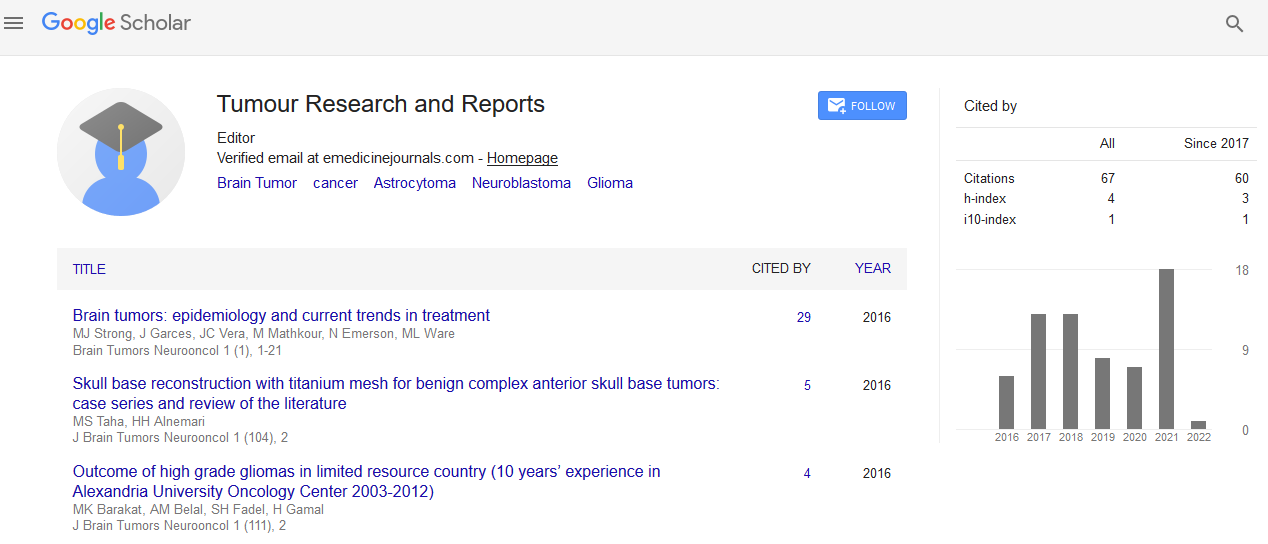Indexed In
- RefSeek
- Hamdard University
- EBSCO A-Z
- Google Scholar
Useful Links
Share This Page
Journal Flyer

Open Access Journals
- Agri and Aquaculture
- Biochemistry
- Bioinformatics & Systems Biology
- Business & Management
- Chemistry
- Clinical Sciences
- Engineering
- Food & Nutrition
- General Science
- Genetics & Molecular Biology
- Immunology & Microbiology
- Medical Sciences
- Neuroscience & Psychology
- Nursing & Health Care
- Pharmaceutical Sciences
Abstract
Prognostic Factors and Survival Outcomes of Lung Cancer Patients with Brain Metastasis: Experience of a Tertiary Cancer Centre
Tibdewal AR, Pathak RS, Laskar SG and Agarwal JP
Objectives : Lung cancer is one of the leading causes of cancer deaths in India. Fifteen to 35% of patients present with Brain Metastasis (BM) and are treated with palliative Whole Brain Radiotherapy (WBRT). We report the survival outcomes and prognostic factors of lung cancer patients with BM. Methods: Two hundred and twenty-one patients were analysed from July 2010 - June 2014 who received palliative WBRT. Overall Survival (OS) was computed using Kaplan Meier method. Difference in survival for known prognostic factors were analysed using log rank test with significance of p value at 0.05 and 95% confidence interval. Results: Median OS was 3.7 months. OS at 6, 12 and 24 months was 36%, 24% and 13.8% respectively. Synchronous BM patients had significantly better OS compared to those with metachronous BM with a hazard ratio (HR) 0.62 (95% CI 0.46-0.85, p=0.01). Patients with a higher Graded Prognostic Assessment (GPA) score, a Recursive Partitioning Analysis (RPA) class of I-II and adenocarcinoma histology had comparatively better OS. There was a subset of patients (n=58) who died within 30 days of diagnosis of BM. Neither RPA class nor GPA score could accurately predict patients who were within the 30 day mortality group. Conclusion: Patients of lung cancer with BM have poor outcome. GPA score of 3.5-4.0, RPA class I-II and adenocarcinoma histology showed better survival outcomes. However, neither GPA nor RPA could predict 30 day mortality.

